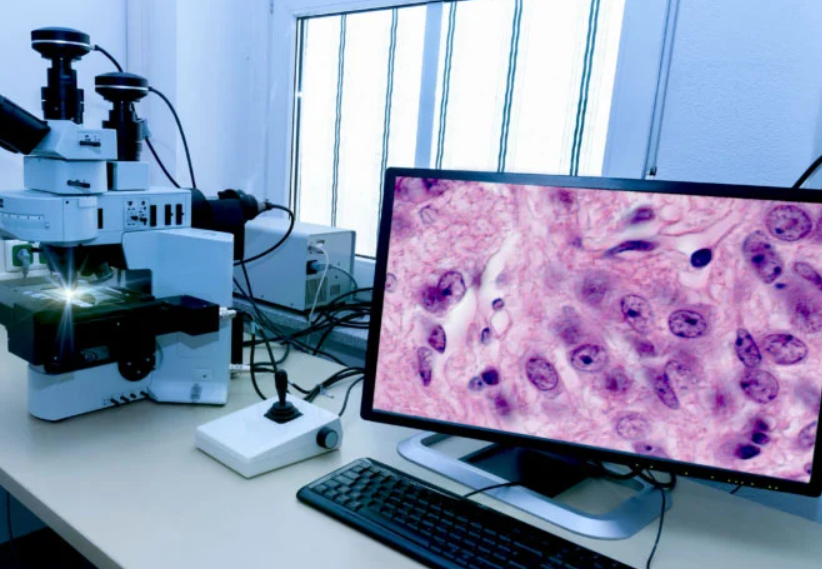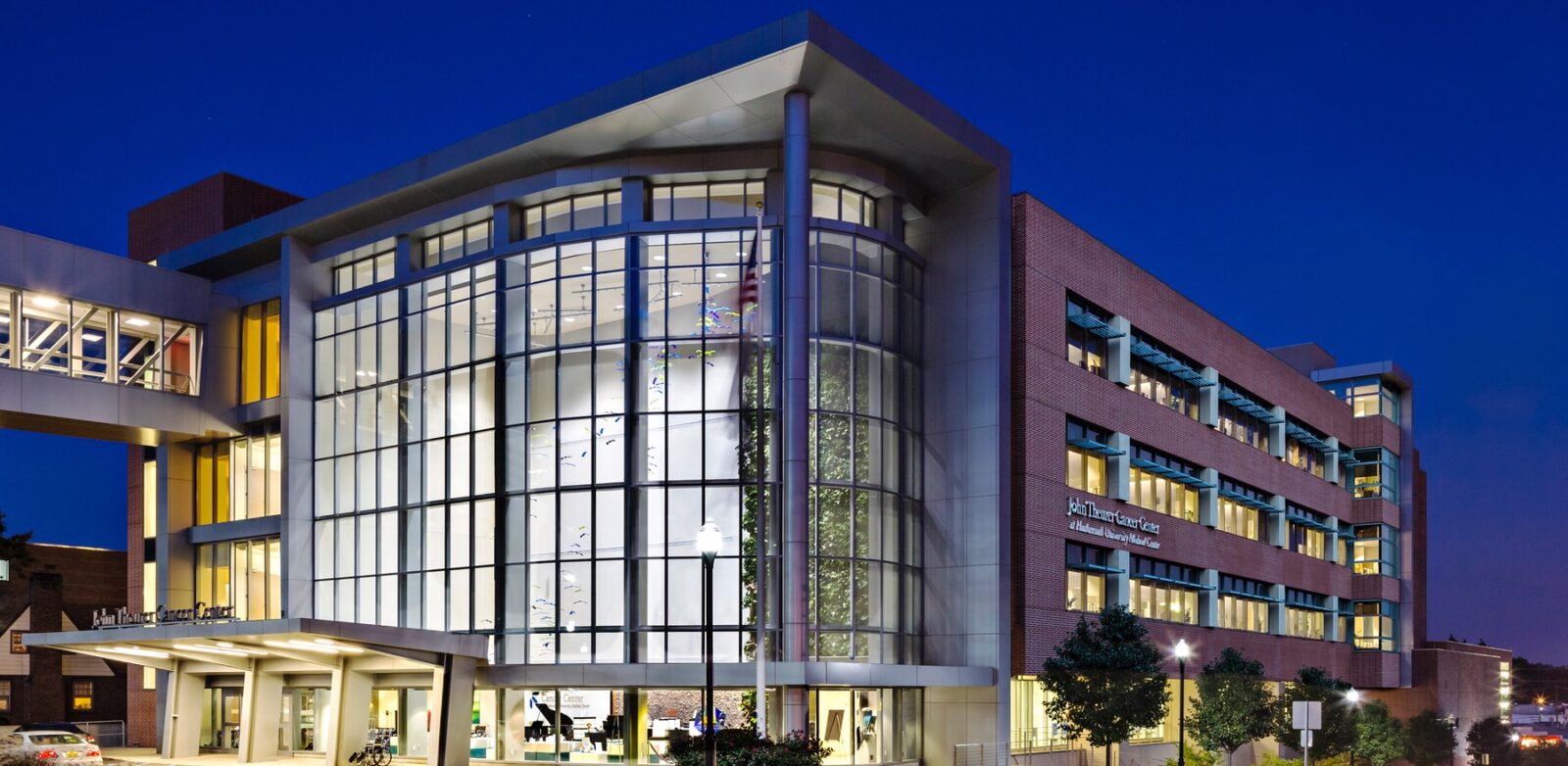Urologic oncology researchers at Hackensack Meridian John Theurer Cancer Center (JTCC) at Hackensack University Medical Center received a grant to evaluate a new artificial intelligence-based technology from Artera enabling doctors to better estimate how aggressive a prostate cancer might be after undergoing radical prostatectomy (prostate removal surgery).
The information would allow clinicians to know which patients may need more intensive therapy post surgery. JTCC is a research partner with Georgetown’s Lombardi Comprehensive Cancer Center.
“After a patient undergoes radical prostatectomy, we still need to determine if that cancer is an aggressive form of cancer that may require additional treatments or a low-risk cancer,” he explained. “While the test has been validated in prostate cancer patients who underwent other treatments like radiation therapy, we are excited to use their MMAI platform to predict patient outcomes for those who underwent surgery.”
Prostate cancer is the most commonly diagnosed cancer among men in the United States. Nearly 300,000 men will learn they have the disease in 2024, but not all of them have prostate cancer that requires treatment. For many years, doctors have been assessing imaging tests, genomics, and biomarkers that may differentiate aggressive from slow-growing (indolent) early-stage prostate cancers.
The ArteraAI Prostate Test, an AI-enabled test, is the first of its kind to provide both prognostic and predictive results for patients with localized prostate cancer. Artera’s multimodal artificial intelligence (MMAI) platform leverages a unique algorithm that assesses digital images from a patient’s histopathology biopsy slide and their clinical data.

The AI combines this information to determine their prognosis and predict whether a patient will benefit from a particular therapy. Nitin Yerram, MD, co-director of urologic oncology at JTCC, received a grant from Artera to assess the MMAI platform for estimating prostate cancer aggressiveness in men who have had a prostate biopsy and underwent surgery.
“The benefit of this approach is that we’re looking at millions of samples and understanding those nuanced differences in a way that a human being could never be able to do,” said Dr. Yerram. “Using validated data, the algorithm identifies image patterns in the biopsy samples to differentiate if a cancer is aggressive or not aggressive.”
This project adds to Dr. Yerram’s impressive list of innovative research projects. He is using another AI technology to detect bladder tumors earlier. He also received a grant to design an educational curriculum to help patients newly diagnosed with localized or metastatic kidney cancer navigate their treatment options more easily. Another grant funded a social media marketing campaign to advertise Men’s Health Day, which provides free resources to Black men who would benefit from prostate cancer screening.
The project assessing the ArteraAI Prostate Test bolsters JTCC’s commitment to customizing cancer care for each patient. “We’re very fortunate to be one of the leading institutions to work with this company to meld biology with artificial intelligence. I think our quest to provide precision medicine will be augmented to an exponential level with the integration of AI,” said Dr. Yerram.
“Hackensack University Medical Center is proud to be at the forefront of innovation in the fight against prostate cancer,” said Michael D. Stifelman, MD, Professor and Chair Urology, Hackensack Meridian School of Medicine and Northern Chair Urology, Hackensack Meridian Health. “By being the first in the country to evaluate this groundbreaking AI technology, we are taking a significant step towards improving patient care and outcomes.”
Hackensack’s nationally ranked Urology program, by U.S. News & World Report’s 2024-25 Best Hospital’s list, has been an early adopter of this latest technology for many years. Most recently the hospital invested in the HYDROS Robotic System, featuring FirstAssist AI™ treatment planning and advanced image guidance for the treatment of enlarged prostate and the Intuitive Surgical da Vinci 5 multiport surgical system. With more than 10,000 times the computing power and the first-of-its-kind force-sensing technology, the da Vinci 5 is the most advanced surgical technology available with the ability to bring future analytical insights supported through artificial intelligence. The goal of these investments, the team says, is to offer patients the highest quality care that exceeds national standards.
About Hackensack Meridian John Theurer Cancer Center
Hackensack Meridian John Theurer Cancer Center at Hackensack University Medical Center is recognized as New Jersey’s best Cancer Center and ranked #44 in the nation by U.S. News & World Report. We are also the largest and most comprehensive center dedicated to diagnosis, treatment, management, research, screening, and preventive care as well as survivorship of patients with all types of cancers. The 16 specialized divisions covering the complete spectrum of cancer care have developed a close-knit team of medical, research, nursing, and support staff with specialized expertise that translates into more advanced, focused care for all patients.
Each year, more people in the New Jersey/New York metropolitan area turn to John Theurer Cancer Center for cancer care than to any other facility in New Jersey. John Theurer Cancer Center is a research partner with Georgetown’s Lombardi Comprehensive Cancer Center, an NCI-designated comprehensive cancer center. Housed within a 775-bed not-for-profit teaching, tertiary care, and research hospital, John Theurer Cancer Center provides state-of-the-art technological advances, compassionate care, research innovations, medical expertise, and a full range of aftercare services that distinguish John Theurer Cancer Center from other facilities.
The center recently expanded to Jersey Shore University Medical Center, serving patients in southern New Jersey and parts of Pennsylvania. Toms River Regional Cancer Center and Saint Joseph’s Health are affiliated with the cancer center. For additional information, visit www.jtcancercenter.org.












